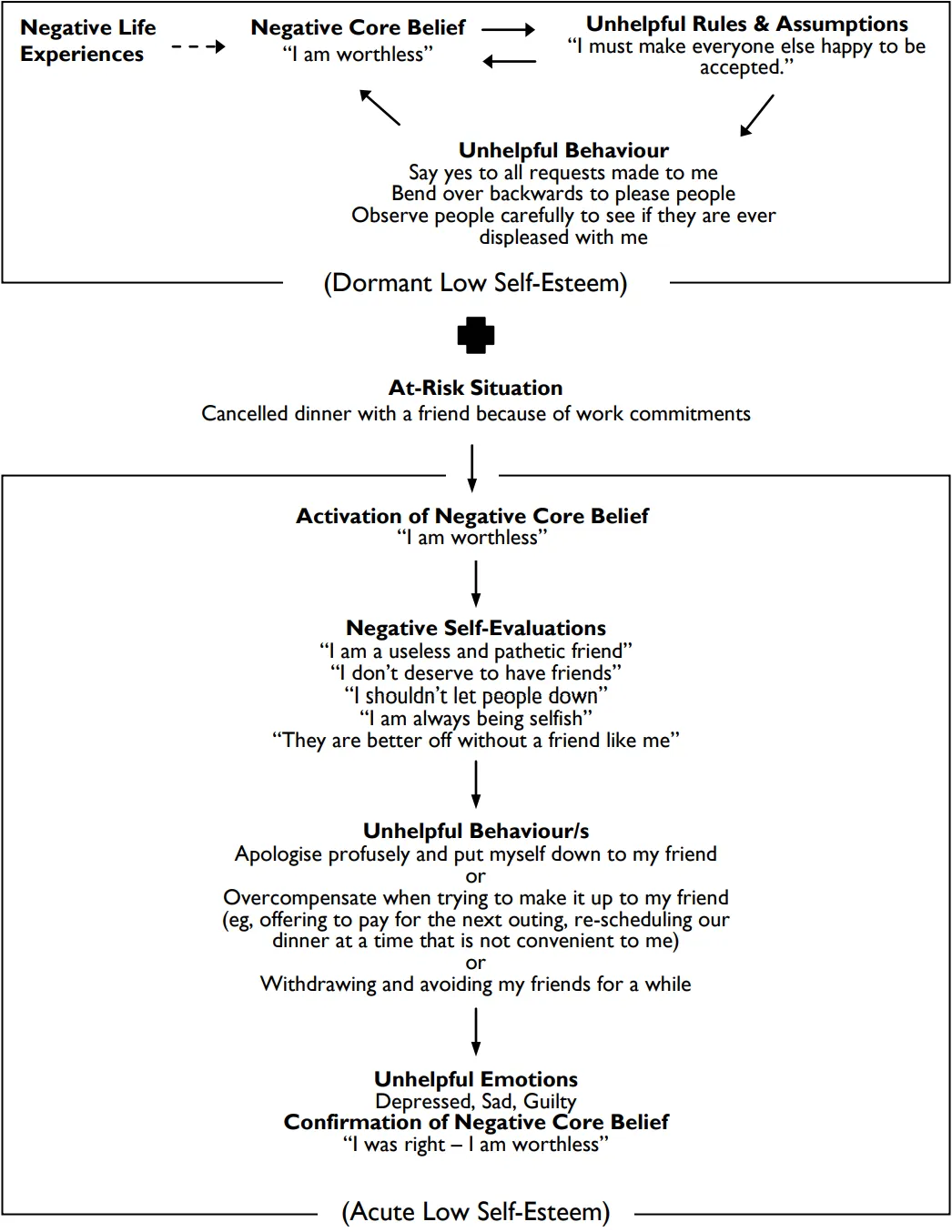10 Things That May Be Sabotaging Your Success
There will always be stars and admirers, people wanting their 15 minutes of fame because what matters to every single one of us is to be Accepted, to be Significant and to be Valued.
When those three things are missing, there is a deviant person in the making; one who will be plagued by low confidence and, even worse, low self-esteem and the feeling of not being appreciated. Hence the constant craving to be accepted.
Lack of confidence and repeatedly ‘failing’ at what we do, does not come overnight. They gradually take hold through the following eight factors, which are listed in order of the magnitude of their effect on our lives:
10 Things That May Be Sabotaging Your Success
1. Negative life experiences:
From school to home these keep you feeling frustrated, developing and polishing your feelings of inferiority and hopelessness to perfection. A lifetime of hearing “You’re no good. You can’t do anything properly. You’re just like your dad. You’re useless. You’re not as good as your brother/sister”, without any corresponding praise, would have done nothing for your morale and sense of worth.
Negative life experiences have the power to cultivate strength, empathy, and a deeper understanding of one’s own capacities. In the tapestry of life, negative experiences are threads that, when woven thoughtfully, contribute to a resilient and nuanced fabric, illustrating the richness and complexity of the human journey.
According to the University of Minnesota Professor Kathleen Vohs and fellow researchers found that Happiness and meaningfulness are frequently characterized as types of positivity. Nonetheless, the researchers came to the conclusion that viewing meaningfulness as essentially good hides the ways in which bad experiences can give people purpose in their life. The study was just released in the psychology journal Current Opinion.
2. Too much pressure:
This usually comes from parents and/or peers to meet their demands and expectations, the ones they didn’t achieve themselves, that they now wish to live through you, regardless of what you want. This deprives you of the opportunity to develop your own goals, identity, independence and autonomy.
Excessive pressure can act as a double-edged sword, propelling individuals to great achievements but also risking burnout and mental fatigue. The weight of too much pressure can distort decision-making, leading to stress, anxiety, and a toll on both mental and physical well-being. Balancing ambition with self-care is crucial; acknowledging and managing the burden of excessive pressure is key to fostering long-term success and overall life satisfaction.
If you wanted to know more about “How to Deal with Too Much Pressure at Work” we will recommend you read the article from Harward Business Review by Tomas Chamorro-Premuzic.
3. Loss of a key family member or close friend:
This could include your parents’ break-up or even death, moving away from home for the first time and breaking up with a friend. Often we do not allow ourselves time to grieve, or we blame ourselves for the event, and the consequences soon reveal themselves in other distressing ways. Grieving the departure of a loved one is a complex journey, marked by waves of sorrow and moments of cherished memories, highlighting the enduring influence they had on our lives.
If you’re struggling to accept your loss or your grief feels overwhelming, try talking to a grief therapist. The NHS offers some therapy sessions for free. Often, these services are referred to as psychological wellbeing services or talking therapy. If you reside in England, you may be able to make the referral on your own or request one from your general practitioner. In the remaining parts of the UK, you should first consult your doctor.
To locate and get in touch with your local service, use the NHS talking therapies service locator online. Along with some information about yourself, you must include a contact method. Someone from the service ought to get in touch with you to do an assessment in a few weeks.
4. Fear of failure:
You internalize and interpret any negative result to mean that you are a ‘useless’ person instead of seeing yourself as a perfectly capable individual who had an off-day and can always attempt that task again, like attending another interview or learning a new skill.
When your job becomes redundant you equate yourself with the uselessness of the position and see yourself as the one being rejected. Suddenly you perceive yourself as a worthless person who will never get another job again a perception which dictates how you deal with the loss and the actual outcome.
The fear of failure can hinder personal growth and innovation, emphasizing the importance of cultivating a mindset that embraces mistakes as stepping stones toward success. Overcoming the fear of failure requires a shift in perspective, viewing setbacks not as permanent defeats but as opportunities for valuable lessons, resilience, and eventual triumph.
Rather from diverting your attention, try recognizing the fear you are experiencing. Accepting and being mindful of this feeling can help the situation more controllable. Reading more about mindfulness could be beneficial for you; here is a collection of self-help books.
5. Judging or criticizing yourself and abilities too harshly:
In your search for perfection, you never allow room for error or learning, for being a mere mortal. Instead, you mainly listen to your own negative voice, that confirms your worst perception and fears, especially when it comes to any appraisal of your efforts and worth.
Engaging in self-judgment and overly harsh self-criticism can create a destructive cycle, undermining confidence and hindering personal development. Embracing a mindset of self-acceptance and recognizing that growth comes from learning, not perfection, is essential in combating the detrimental effects of harsh self-criticism.
The two forms of self-criticism—comparative and internalized—are measured by Thompson and Zuroff’s 2004 Levels of Self-Criticism Scale. Comparative self-criticism typically involves comparing oneself to others and finding oneself to be lacking. And internalized self-criticism can include the conviction that one is insufficient in some manner or that one is incapable of upholding one’s own standards or aspirations.
6. Setting unrealistic goals for yourself:
Goals can sometimes be unrealistic, leading to disappointment:
Often, this is an attempt to seek approval and attain the unreachable. However, as you may not be quite ready for them, such actions mainly encourage you to procrastinate and to lower your achievement rate. They also increase your disappointment and confirm your already negative fears.
Unrealistic goal checklist:
- You are overburdened to handle everything.
- You are not motivated by the goals.
- Unrealistic goals make you lose all flexibility.
Setting unrealistic goals can lead to stress and frustration, as the gap between expectations and reality widens. Striking a balance between aspiration and feasibility is key; realistic goals not only promote a sense of accomplishment but also provide a sustainable path for personal and professional growth.
7. Negative evaluations:
You assess the outcome of situations as much worse than they really are in order to confirm your deepest fears about yourself, while deliberately ignoring or downplaying your strengths and achievements. You tend not to notice your blessings but always what you lack.
You will tend to:
- Withdraw or isolate yourself from family or friends,
- You will try to overcompensate for things.
- You will neglect opportunities, self-care, etc.
Receiving negative evaluations can be disheartening, but viewing them as constructive feedback offers an opportunity for growth and improvement. Instead of letting negative evaluations define one’s worth, they can serve as valuable insights, guiding individuals toward refining skills and addressing areas that may need attention.

8. Dwelling unnecessarily on negative events:
For example, on your failures and disappointments, instead of using them as learning experiences. The longer you stay in the same position, the harder it is to move forward. As the saying goes: “Often we are so busy staring longingly at the closed door behind us we fail to see the open one ahead!” That is the classic case for most people who lose their jobs.
Change your thoughts and you change the world.
Norman Vincent Peale
Overthinking past negative events can create a cycle of rumination, impacting mental well-being; practicing mindfulness and focusing on the present can break this cycle. Breaking the habit of dwelling on negativity involves acknowledging emotions, seeking perspective, and cultivating resilience, fostering a healthier mindset for navigating life’s challenges.
| Also Read: 11 Things Rich People Do That The Poor Don’t |
9. A low self-esteem:
Your perception of yourself is your self-esteem. Healthy self-esteem is the ability to appreciate oneself and recognize one’s accomplishments. Even while everyone experiences moments of insecurity, those with low self-esteem are often unhappy or dissatisfied with who they are.
Personal growth comes through a willingness to accept change from daily endeavors. But we are hampered by a fear of the consequences, a fear of taking risks, of creating opportunities and even a fear of handling success.
However, some people’s low opinion of themselves is so deep-rooted, and their resistance to change so strong, it would probably take years to show them that they are unique, talented human beings who can control their own future to great personal satisfaction.
Characteristics of low self-esteem:
- Is extremely critical of themselves.
- Downplays or ignores their positive qualities.
- Believes that they are not as good as their peers.
- Believes that all of their accomplishments are mostly the result of luck.
- Blames themselves when things go wrong.
- Doesn’t believe a person who compliments them.
10. Interpreting negative or distressing situations:
Negative thoughts have the potential to divert attention from priorities, drain one’s energy, and contribute to feelings of anxiety and depression. According to the research, prolonged negative thinking has been demonstrated to impair the brain’s capacity for logical reasoning, thoughtful analysis, and memory formation.
Negative thought processes deter us from positive acts simply because of our fear of change. There are many people like this alive today because of a preoccupation with the past and the desire to avoid, or not to repeat, any mistakes. In effect, they are caught in a continuous and futile attempt to be perfect.

 Previous Post
Previous Post Next Post
Next Post